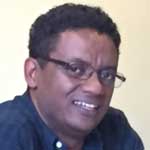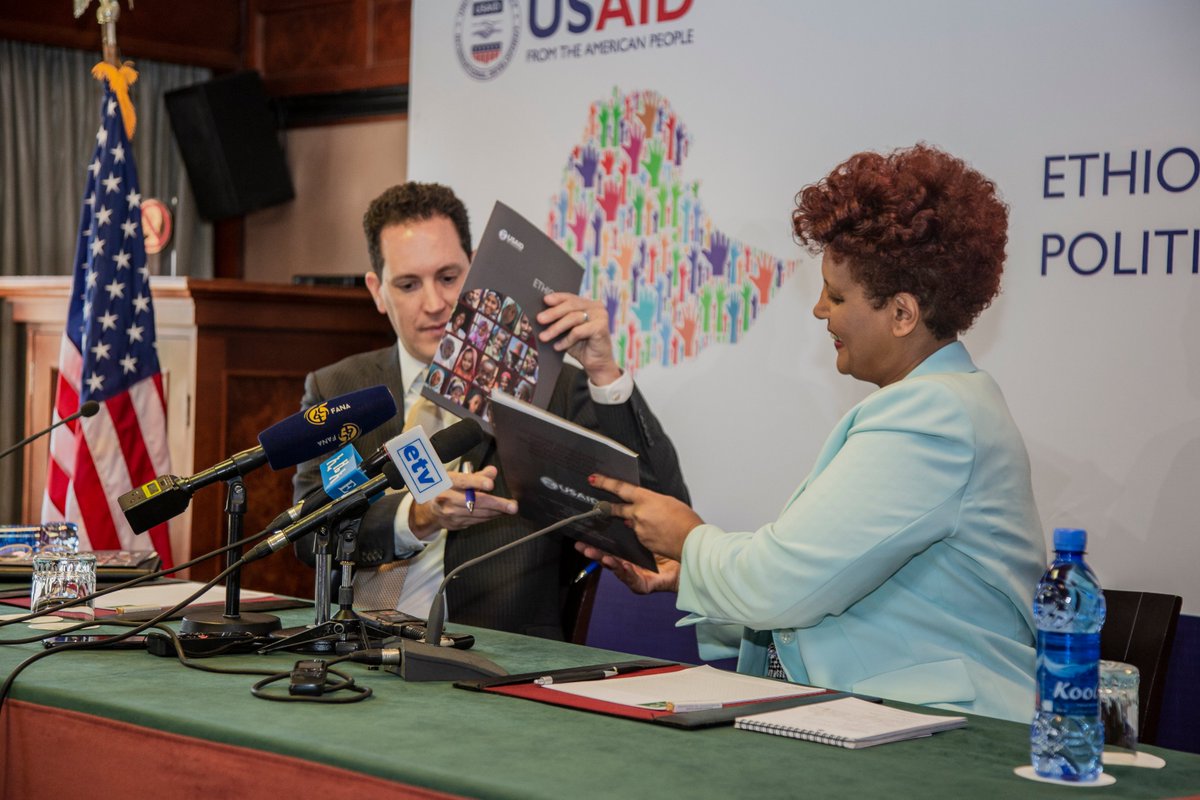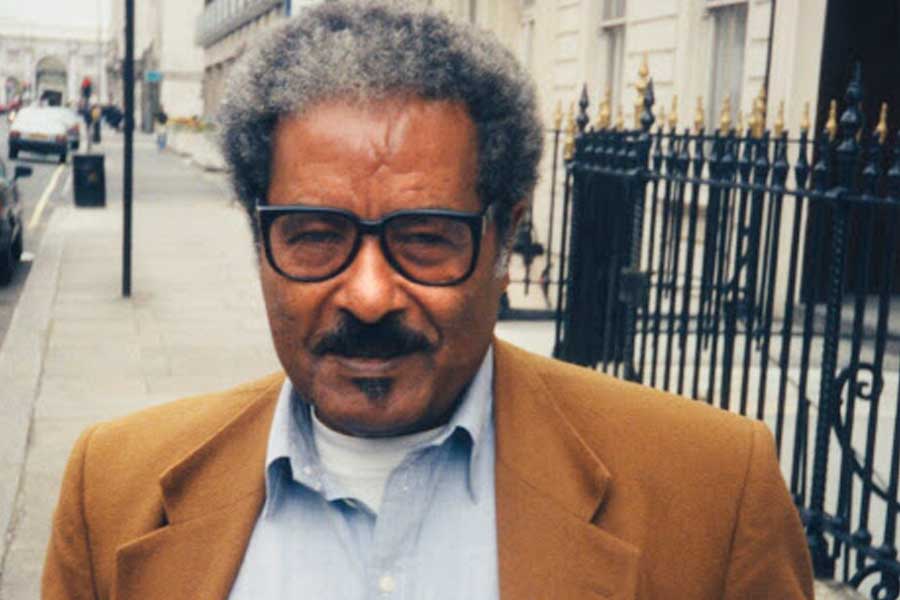
Viewpoints | Nov 14,2020
Oct 10 , 2020
By Dawit Wondimagegn
Political interference, the tolerance of mediocrity, and the fear-mediated silence of well-meaning but capable individuals have turned the ideal university into a collection of weaknesses. It is why there is still a great deal to learn from the late Mesfin Woldemariam's (Prof.) dedication to academic freedom, writes Dawit Wondimagegn (MD) (dawitwondimagegn@gmail.com), associate professor of psychiatry at Addis Abeba University’s School of Medicine and chief executive director of Tikur Anbessa Hospital. His views are personal and do not represent the opinion of any institution.
As life would have it, there is only a thin line between now and then. It feels strange to address the now late Mesfin Woldemariam (Prof.) this way. He neither needs an introduction nor a description of who he was. His work made him a scholar par excellence that his given name needs no qualification.
It was said that in ancient times, royals needed no introduction. If anyone in attendance did not know them, then that person was in the wrong place. The late Professor was such a figure that anyone who claims a seat on the increasingly fragile and fragmenting sociopolitical landscape of our nation, irrespective of their view or where they hold their truth, would recognise him as who he was and how he lived a life given to a cause.
For many more ‘ordinary’ Ethiopians who are not at the sociopolitical table, unless on the menu, he was a symbol and reminder of what a free person looks like. One only hopes that historians will do justice in documenting him and his life’s work as his place in the annals of time is uncontested.
For me, he belonged to an ilk - a very rare one - that spoke truth to power, one of the most prevalent deficiencies of our time. It requires one to abandon all loyalties and stick to one and only one: the truth! The act and art of this is rooted in a value known to our kind since the times of old: freedom.
At the heart of all human endeavours irrespective of perspective, whether you are a creationist or not, the quest for freedom drove many, including in the advances and development of science and technology. It is this search for freedom that is expressed in various forms to create the ills and cures of society.
In recent times, the ideal of freedom seems to be wandering in search of a home, a place where one once enjoyed the utmost safety and nurturance. Universities as places where a difference was made used to be the ultimate shrine to freedom; one cannot make the same claim with any level of confidence anymore. The spirit and ideal of freedom is drained from all the orifices of a university, a place once deemed the lifeline of freedom.
Universities were the seat of freedom not because they are places where people used to drink from ‘the fountains of knowledge’ nor is it because universities are places where ‘communities of difference’ come to live in a peaceful existence, which is rather a supposition than an assertion now. Universities were the shrines of freedom because they used to embrace the mother of all freedoms: academic freedom.
It is a term that keeps eluding all except the few. The late Professor was one of these.
The socialisation of people who speak truth to power could be characterised by their introduction to academia early in their formative years. In this instance, ‘academia’ is to be understood not only as a university, a school or a physical place with teachers but as a mental and social space where the capacity to and for ‘reason’ is nurtured. Universities by virtue of their claim as sanctuaries of knowledge symbolise ‘academia’ as a place of reason on a platform of academic freedom.
Academic freedom defined grossly as the freedom exercised by members of a university to engage in intramural (in-house issues of the university) and extramural (extracurricular issues of interest beyond the university) activities, is the single most important foundational principle on which a university could justify its existence. This spirit is captured by the operationalisation of academic freedom in the governance of the university through the cultivation of the ‘collective wisdom’ among its members. The collective wisdom of a university is channelled through the various organisational functions of the institution.
This is all in the past. Both the ideal of academic freedom and the culture of nurturing it through the process of collective wisdom has been choked slowly to leave their academic shrines for a long time. The very few people who uphold those values have been shunned from roles and places at the table that they are forced to lead the life of a noble outcast. This is one reason among many why the death of the eminent Professor should send a jolt through all of us that should wake the indestructible core of our being to bring us back to our senses.
There has been a gradual but complete abandonment of academic freedom and collective wisdom from all the domains of the ideal university currently, except the various proclamations and papers on which there are claims that these are still founding principles This has forced many to succumb to a paralysing fear that, at best, most opted to join the realm of ‘the silent majority’ and for the few to remain as ‘voices from the desert’.
The phenomenon of fear is the ultimate nemesis of the ideal of freedom. When fear creeps into the minds and souls of people it is devastating to the point that people would forgo their freedom, and that of others, just to make sure that they keep on surviving. This, in turn, creates the sad state of a mentality where fear dominates the soul and all subsequent actions are governed by a commitment to absolute compliance to the needs of those in power.
People who overcame fear, like the Professor, will remain above power and will have no qualms to speak truth to it and face the consequences. The way power works is by breaking the person, by attempting to destroy the indestructible core of an individual. The creation of fear mediates the process. This is why we look up to people like Mesfin even when we do not necessarily agree with their philosophy of life. It is only human nature that we marvel at people who overcame fear and prevailed where most do not even begin to confront it.
This is the place where we - elites, scholars, researchers and teachers - find ourselves.
While the ideal university is engulfed by fear drained of the spirit of academic freedom and thirst for collective wisdom, how do we rise above it? How do we build a shrine that could host the resuscitation of these values?
Political interference, the tolerance of mediocrity, and the fear-mediated silence of well-meaning but capable individuals have turned the ideal university into a collection of weaknesses. The late Professor was known for his staunch defence of the ideal university, and we have all had our positions and counter positions against or for his criticism. Now that he is gone, it might be a good opportunity to take up the questions in a more serious tone and reflect on our contributions for protecting, preserving and upholding the values that we all say are fundamental to address the devaluation of academic freedom.
PUBLISHED ON
Oct 10,2020 [ VOL
21 , NO
1067]


Viewpoints | Nov 14,2020

Radar | Apr 13,2019

Radar | Oct 05,2019

Viewpoints | Sep 06,2020

Radar | Nov 06,2021

Election 2021 coverage | Mar 01,2020

My Opinion | Jun 07,2020

Viewpoints | May 02,2024

Radar | Nov 06,2021

Obituary | Oct 11,2020

Photo Gallery | 178670 Views | May 06,2019

Photo Gallery | 168863 Views | Apr 26,2019

Photo Gallery | 159701 Views | Oct 06,2021

My Opinion | 137097 Views | Aug 14,2021
Commentaries | Oct 25,2025

Dec 22 , 2024 . By TIZITA SHEWAFERAW
Charged with transforming colossal state-owned enterprises into modern and competitiv...

Aug 18 , 2024 . By AKSAH ITALO
Although predictable Yonas Zerihun's job in the ride-hailing service is not immune to...

Jul 28 , 2024 . By TIZITA SHEWAFERAW
Unhabitual, perhaps too many, Samuel Gebreyohannes, 38, used to occasionally enjoy a couple of beers at breakfast. However, he recently swit...

Jul 13 , 2024 . By AKSAH ITALO
Investors who rely on tractors, trucks, and field vehicles for commuting, transporting commodities, and f...

Oct 25 , 2025
The regulatory machinery is on overdrive. In only two years, no fewer than 35 new pro...

Oct 18 , 2025
The political establishment, notably the ruling party and its top brass, has become p...

Oct 11 , 2025
Ladislas Farago, a roving Associated Press (AP) correspondent, arrived in Ethiopia in...

Oct 4 , 2025
Eyob Tekalegn (PhD) had been in the Governor's chair for only weeks when, on Septembe...

Oct 25 , 2025 . By YITBAREK GETACHEW
Officials of the Addis Abeba's Education Bureau have embarked on an ambitious experim...

Oct 26 , 2025 . By YITBAREK GETACHEW
The federal government is making a landmark shift in its investment incentive regime...

Oct 29 , 2025 . By NAHOM AYELE
The National Bank of Ethiopia (NBE) is preparing to issue a directive that will funda...

Oct 26 , 2025 . By SURAFEL MULUGETA
A community of booksellers shadowing the Ethiopian National Theatre has been jolted b...